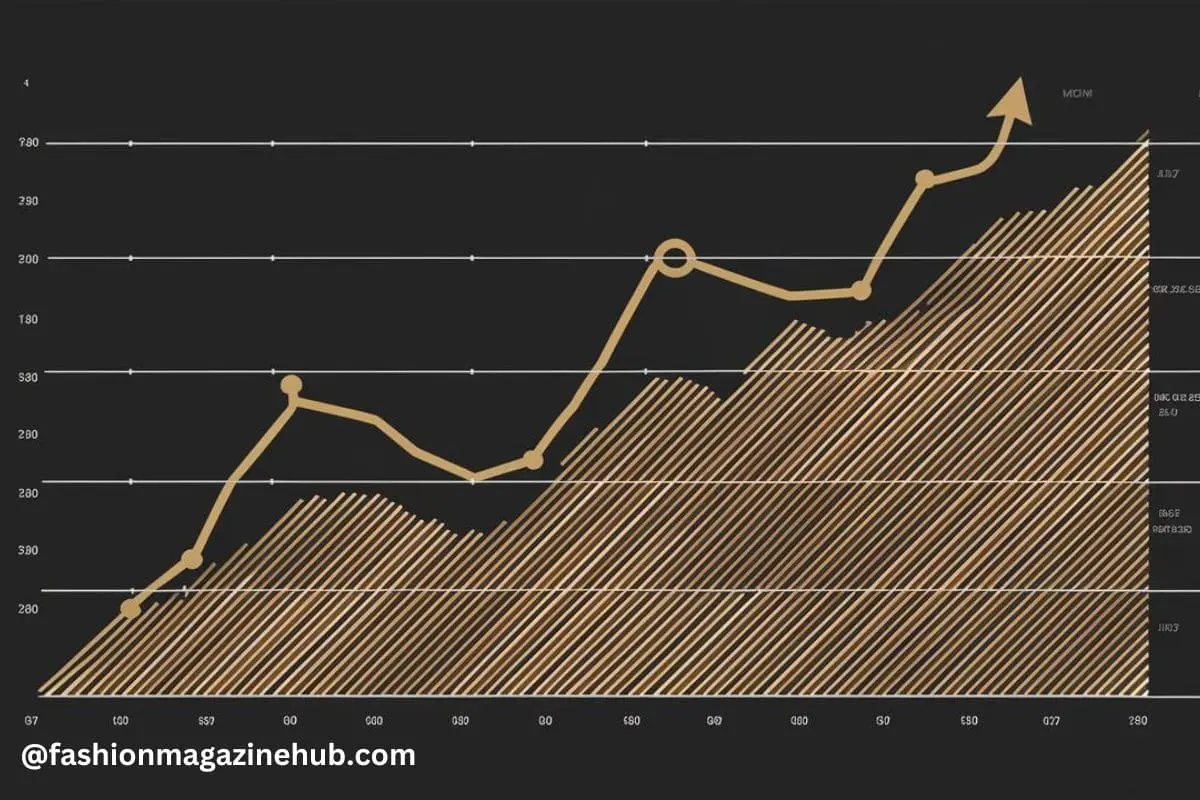GDP – Deleted Scene – E355 Uncovers Untold Stories Behind Economic Metrics
In the realm of economic analysis, GDP is often revered as the quintessential measure of a country’s economic performance. However, the “GDP – Deleted Scene – E355” offers a deeper dive into the complexities and nuances that are frequently overlooked in standard GDP calculations. This exploration reveals the hidden layers of GDP, uncovering the significant yet often unaccounted-for contributions of informal economic activities, non-market transactions, and environmental impacts. By examining these overlooked aspects, the “GDP – Deleted Scene – E355” challenges us to rethink our understanding of economic success and to consider a more comprehensive approach to measuring economic health and societal well-being. This expanded perspective not only enhances our grasp of economic metrics but also highlights the need for integrating alternative measures to fully capture the richness of economic and social progress.
Understanding GDP – Deleted Scene – E355: The Basics of Economic Measurement
Gross Domestic Product (GDP) is a crucial metric used to gauge the economic performance of a country. It measures the total value of all goods and services produced within a nation’s borders over a specific period, typically a year. The GDP – Deleted Scene – E355 delves into the foundational aspects of this measurement, explaining its significance in economic analysis. By understanding GDP’s core components—such as consumption, investment, government spending, and net exports—one can appreciate its role in reflecting economic health. However, this scene also emphasizes the limitations of GDP as a sole indicator of prosperity, highlighting that while it provides a snapshot of economic activity, it does not capture other critical dimensions such as social well-being or environmental sustainability.
-
Definition and Importance of GDP
Gross Domestic Product (GDP) is a critical economic metric that represents the total value of all goods and services produced within a country over a specified period, usually annually. It serves as a primary indicator of a nation’s economic performance and overall economic health. GDP is essential for policymakers, economists, and analysts as it provides a snapshot of economic activity and growth. By measuring the economic output, GDP helps in comparing economic performance across different countries and periods, and in assessing the impact of economic policies. It influences decision-making processes related to fiscal policy, monetary policy, and investment strategies, making it a fundamental tool in economic analysis and planning.
-
Key Components of GDP Calculation
GDP is calculated using three main approaches: the production (or output) approach, the income approach, and the expenditure approach. The production approach is a method that evaluates the value added at each stage of production. The income approach sums up all incomes earned by individuals and businesses, including wages, rents, interests, and profits. The expenditure approach calculates GDP by adding up all expenditures or spending in the economy, which includes consumption, investment, government spending, and net exports (exports minus imports). Each approach provides a different perspective but ultimately converges to the same GDP figure, ensuring comprehensive measurement of economic activity.
GDP – Deleted Scene – E355: Exploring The Shadow Economy
The shadow economy, often referred to as the informal or black market, encompasses economic activities not officially recorded or regulated by the government. GDP – Deleted Scene – E355 explores this hidden sector’s impact on national economic metrics. Informal work, under-the-table transactions, and illegal activities contribute significantly to the economic fabric but are often excluded from official GDP calculations. This omission can skew the true representation of a country’s economic health. The scene highlights how the shadow economy affects not only the accuracy of GDP estimates but also the effectiveness of economic policies. By integrating the shadow economy into GDP assessments, policymakers can gain a more comprehensive understanding of economic dynamics and address issues related to tax evasion and labor market distortions.
-
The Role of Informal Economic Activities
Informal economic activities, including unregistered businesses, freelance work, and cash transactions, play a significant role in many economies. These activities are often not captured in official GDP measurements but contribute substantially to economic activity and employment. Informal work provides livelihoods for millions and can drive economic growth by filling gaps left by formal sectors. However, the lack of regulation and oversight can lead to issues such as tax evasion and lower productivity standards. Understanding and incorporating informal economic activities into GDP calculations can provide a more accurate picture of economic dynamics and help in designing more inclusive economic policies.
-
Impact of The Shadow Economy on National GDP
The shadow economy, or informal sector, includes economic activities that are not reported to the authorities and therefore not reflected in official GDP figures. This sector can have a substantial impact on national GDP by contributing to economic output and employment without being captured in official statistics. The presence of a large shadow economy can lead to underestimation of the actual economic activity and revenue, affecting policy-making and resource allocation. Addressing the shadow economy involves improving regulatory frameworks and increasing incentives for informal workers and businesses to transition into the formal sector, which can enhance the accuracy of GDP measurements and overall economic governance.
Non-Market Transactions In GDP – Deleted Scene – E355
Non-market transactions, such as volunteer work and household chores, play a vital role in society yet are not captured by traditional GDP measurements. GDP – Deleted Scene – E355 sheds light on these activities and their substantial value. These transactions contribute significantly to societal well-being by supporting community health, education, and family life without involving monetary exchange. For instance, the care provided by family members or community volunteers supports the economy indirectly by allowing others to participate in the labor market. The scene argues for the inclusion of non-market transactions in economic evaluations to offer a more accurate picture of a nation’s true economic contribution and to acknowledge the essential services these activities provide.
-
Valuing Volunteer Work and Household Contributions
Volunteer work and household contributions, such as caregiving and domestic chores, are crucial to societal well-being and economic stability, yet they are not reflected in traditional GDP measurements. These non-market activities contribute significantly to the economy by supporting family structures and community functions, allowing other economic activities to take place. Valuing these contributions involves estimating their economic worth based on market equivalents or opportunity costs. Incorporating these activities into GDP calculations can provide a fuller picture of economic health and social value, emphasizing the importance of unpaid work in sustaining economic and social systems.
-
How Non-Market Activities Enhance Economic Well-Being
Non-market activities, such as volunteerism, caregiving, and household labor, play a vital role in enhancing economic well-being by supporting societal functions that go beyond monetary transactions. These activities contribute to social cohesion, community health, and overall quality of life. They provide essential services that facilitate paid work and economic growth by enabling individuals to balance work and personal responsibilities. By enhancing social capital and individual well-being, non-market activities indirectly support economic stability and productivity. Recognizing and valuing these activities can lead to more comprehensive economic assessments and policies that reflect the true contribution of these vital services to overall well-being.
Quality of Life Metrics in GDP – Deleted Scene – E355
GDP is often critiqued for its inability to reflect quality of life or overall well-being. GDP – Deleted Scene – E355 addresses these limitations by highlighting how GDP measures economic output but not individual happiness or social progress. Traditional GDP calculations focus on economic transactions and ignore factors such as environmental quality, health, and education, which significantly impact quality of life. The scene suggests alternative metrics, such as the Human Development Index (HDI) and the Social Progress Index (SPI), which provide a more holistic view of societal progress. By incorporating these quality of life metrics, policymakers can create more balanced and inclusive economic policies that better reflect the true well-being of a population.
-
The Limitations of GDP as an Indicator of Happiness
GDP, while useful for measuring economic output, has notable limitations as an indicator of individual happiness and overall life satisfaction. It focuses solely on economic transactions and ignores factors such as mental health, personal fulfillment, and environmental quality, which significantly impact happiness. GDP does not account for the distribution of wealth or the quality of life, leading to a potentially misleading representation of well-being. As a result, relying solely on GDP to gauge societal happiness can overlook critical aspects of life quality, such as social relationships, health, and environmental conditions. Alternative measures, like the Gross National Happiness (GNH) or Wellbeing Index, provide a more holistic view of happiness and well-being.
-
Alternative Measures For Assessing Quality of Life
To address the limitations of GDP, various alternative measures are used to assess quality of life and well-being. These include the Human Development Index (HDI), which combines indicators of health, education, and income, and the Social Progress Index (SPI), which evaluates social and environmental factors that contribute to overall progress. The Genuine Progress Indicator (GPI) adjusts GDP by accounting for factors such as environmental degradation and income inequality. These measures provide a broader view of societal well-being by incorporating non-economic dimensions like health, education, and social inclusion, offering a more comprehensive assessment of quality of life beyond mere economic output.
Environmental Costs in GDP – Deleted Scene – E355
The environmental costs associated with economic activity are often overlooked in GDP calculations. GDP – Deleted Scene – E355 discusses how pollution, resource depletion, and environmental degradation are not factored into GDP, despite their significant long-term impacts. Traditional GDP measures focus on economic growth without accounting for the negative effects on natural resources and ecosystems. The scene emphasizes the need to integrate environmental considerations into GDP calculations to reflect the true cost of economic activities. Incorporating metrics such as environmental degradation indexes or natural capital accounting can help policymakers address sustainability challenges and promote more environmentally responsible economic practices, ensuring that growth does not the current actions are detrimental to the planet’s health.
-
The Hidden Impact of Pollution and Resource Depletion
Pollution and resource depletion have significant yet often hidden impacts on economic health and sustainability. Traditional GDP calculations do not account for the costs associated with environmental degradation, such as air and water pollution, loss of biodiversity, and depletion of natural resources. These environmental issues can undermine long-term economic stability and growth by degrading ecosystems that support economic activities. The hidden costs of pollution and resource depletion can lead to increased health care costs, reduced quality of life, and diminished natural capital. Integrating environmental costs into economic assessments is crucial for developing sustainable policies and practices that safeguard both economic and environmental health.
-
Integrating Environmental Considerations Into GDP Calculations
Incorporating environmental considerations into GDP calculations involves adjusting traditional economic measures to account for ecological impacts. This approach aims to reflect the true cost of economic activities by including factors such as resource depletion, pollution, and environmental degradation. Techniques like environmental accounting or green GDP measure the economic value of environmental services and the costs of environmental harm. By integrating these considerations, policymakers can develop more sustainable economic policies that promote long-term growth while protecting natural resources. This approach helps ensure that economic progress does not come at the expense of environmental health, providing a more accurate and comprehensive view of economic well-being.
Income Inequality and GDP – Deleted Scene – E355
Income inequality presents a significant challenge to the accuracy of GDP as a measure of economic health. GDP – Deleted Scene – E355 explores how GDP averages can obscure wealth disparities within a country. While GDP may indicate overall economic growth, it does not reveal how income is distributed among different segments of the population. The scene highlights that significant income inequality can undermine social cohesion and economic stability. Addressing this issue requires looking beyond GDP to understand how wealth is shared and implementing policies that promote equitable growth. By considering income distribution alongside GDP, policymakers can better address social disparities and create a more balanced economic environment.
-
Understanding Wealth Disparities In Economic Metrics
Wealth disparities are a significant factor that traditional GDP metrics often overlook. While GDP measures overall economic output, it does not account for how wealth is distributed among different segments of the population. This can mask significant income and wealth inequalities within a country. Understanding these disparities is crucial for assessing the true economic health of a society, as large inequalities can lead to social unrest and undermine economic stability. To address these disparities, additional metrics such as the Gini coefficient or income distribution ratios can be used to evaluate how wealth is shared and to inform policies aimed at reducing inequality and promoting more equitable economic growth.
-
The Societal Implications of Ignoring Income Inequality
Ignoring income inequality in economic assessments can have profound societal implications. While GDP measures economic output, it does not reflect how income and wealth are distributed among a population. Large disparities in income can lead to social tension, reduced social cohesion, and hinder overall economic progress. High levels of inequality can impact access to education, healthcare, and opportunities, perpetuating cycles of poverty and limiting social mobility. Addressing income inequality is essential for fostering a more inclusive society where economic benefits are shared more equitably. Policymakers must consider income distribution alongside GDP to develop strategies that promote social stability and economic fairness.
Reimagining Economic Success: Insights from GDP – Deleted Scene – E355
Reimagining economic success involves expanding beyond traditional GDP metrics to include alternative measures that provide a fuller picture of progress. GDP – Deleted Scene – E355 advocates for the use of alternative indicators like the Genuine Progress Indicator (GPI) and the Human Development Index (HDI). These metrics offer insights into factors such as environmental sustainability, social well-being, and economic inclusivity. The scene presents case studies of countries that have adopted these alternative measures to guide policy and decision-making. By incorporating a range of indicators, policymakers can better assess and promote sustainable and inclusive economic development, leading to more comprehensive and effective strategies for advancing societal well-being.
-
The Need For Alternative Economic Metrics
There is a growing recognition of the need for alternative economic metrics that provide a more comprehensive view of societal progress and well-being. While GDP focuses on economic output, it often overlooks factors such as environmental sustainability, social inclusion, and quality of life. Alternative metrics, such as the Human Development Index (HDI) or the Genuine Progress Indicator (GPI), address these gaps by incorporating dimensions beyond economic activity. These measures consider health, education, environmental quality, and social equity, offering a broader perspective on progress. By adopting these alternative metrics, policymakers can better understand the impacts of economic policies and work towards more balanced and sustainable development.
-
Case Studies of Countries Implementing New Measures
Several countries have begun implementing new measures to complement or replace traditional GDP metrics, aiming for a more holistic view of progress. For example, Bhutan uses the Gross National Happiness (GNH) Index, which includes factors such as psychological well-being, health, and cultural diversity. New Zealand has developed a Living Standards Framework that incorporates measures of natural and social capital alongside economic indicators. These case studies demonstrate how integrating alternative metrics can provide a more comprehensive understanding of societal progress and well-being. By examining these examples, other nations can learn from successful implementations and consider adopting similar approaches to enhance their own economic assessments and policies.
Policy Implications Highlighted In GDP – Deleted Scene – E355
The policy implications of the insights revealed in GDP – Deleted Scene – E355 are significant for shaping future economic strategies. The scene highlights the need for policies that go beyond traditional GDP metrics to address issues such as income inequality, environmental sustainability, and social well-being. It suggests that integrating alternative measures into economic planning can lead to more inclusive and sustainable growth. For example, policies focusing on improving environmental quality, enhancing social services, and reducing income disparities can create a more balanced and equitable economic environment. By adopting these insights, governments can develop policies that not only drive economic growth but also ensure that the benefits are shared more equitably and sustainably.
-
Strategies For Promoting Inclusive Economic Growth
Promoting inclusive economic growth involves implementing strategies that ensure the benefits of economic development are shared widely across society. This includes addressing income inequality, improving access to education and healthcare, and fostering opportunities for marginalized groups. Policies such as progressive taxation, targeted social programs, and investments in public services can help reduce disparities and promote equitable growth. Additionally, creating economic opportunities in underserved regions and supporting small and medium-sized enterprises can contribute to more balanced development. By focusing on inclusive growth, policymakers can enhance social cohesion, improve quality of life, and ensure that economic progress benefits all segments of society.
-
The Role of Sustainable Practices In Economic Policy
Sustainable practices are increasingly recognized as essential for effective economic policy and long-term growth. Integrating sustainability into economic policy involves considering the environmental and social impacts of economic activities and making decisions that promote long-term resilience. This includes adopting practices that reduce carbon emissions, conserve natural resources, and support social equity. Policies such as green investments, renewable energy incentives, and environmental regulations can drive sustainable development and address the challenges of climate change and resource depletion. By prioritizing sustainable practices, policymakers can ensure that economic growth aligns with environmental stewardship and social responsibility, creating a more resilient and equitable economy.
Conclusion
The “GDP – Deleted Scene – E355” provides a compelling lens through which to view the limitations and potential enhancements of traditional GDP measurements. By spotlighting the roles of informal economic activities, non-market contributions, and environmental factors, this analysis underscores the importance of broadening our economic metrics to include aspects that are vital to true economic health and societal well-being. As we move forward, it becomes increasingly clear that relying solely on GDP as an economic indicator is insufficient for capturing the full spectrum of economic and social dynamics. Embracing alternative measures and integrating a more holistic approach to economic assessment will not only lead to more accurate reflections of economic performance but also foster more inclusive and sustainable growth. The insights from the “GDP – Deleted Scene – E355” pave the way for a more nuanced and equitable understanding of economic success in the modern world.
FAQs
How does “GDP – Deleted Scene – E355” impact our understanding of economic health?
It reveals the limitations of GDP in capturing the full scope of economic and societal well-being.
What key elements does “GDP – Deleted Scene – E355” highlight?
It highlights informal economic activities, non-market contributions, and environmental impacts.
Why is it important to consider “GDP – Deleted Scene – E355”?
It emphasizes the need for more comprehensive measures to assess true economic progress and quality of life.
What alternative metrics are suggested by “GDP – Deleted Scene – E355”?
Metrics like the Human Development Index (HDI) and Genuine Progress Indicator (GPI) are suggested for a fuller picture.
Thank you for exploring our Blog! For additional captivating content, feel free to explore the website.


















Post Comment